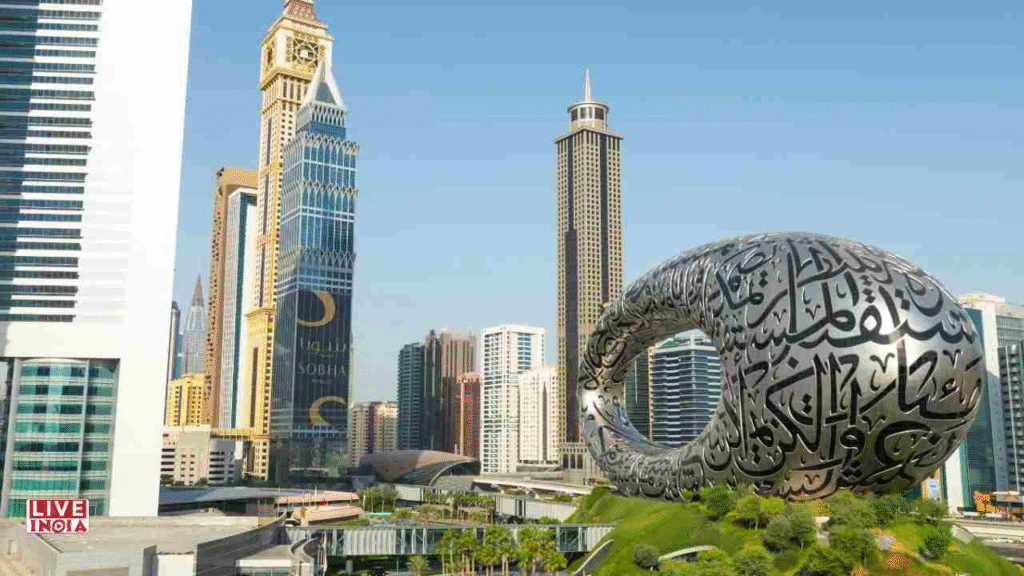
The United Arab Emirates (UAE) has transformed itself into one of the world’s most attractive financial hubs. From the bustling skyscrapers of Dubai to the structured planning of Abu Dhabi, the nation has developed a business ecosystem that attracts global investors, entrepreneurs, and multinational corporations. With strong policies, world-class infrastructure, and a forward-looking vision, the UAE has successfully positioned itself as the financial heart of the Middle East and a growing global powerhouse.
One of the key strengths of the UAE as a financial hub is its geographic position. Located between Asia, Europe, and Africa, the UAE serves as a bridge connecting three major markets. This advantage allows businesses to expand easily into surrounding regions while using the UAE as their base. Global airlines, shipping routes, and logistics companies have also supported this role, making the a central point for both trade and finance.
Dubai and Abu Dhabi in particular have developed into financial centers that rival the likes of Singapore, London, and Hong Kong in terms of accessibility, ease of doing business, and global reach.
The UAE government has played a major role in building this strong financial ecosystem. Several policies have encouraged both local and foreign investment:
Such policies reflect the country’s vision to diversify its economy beyond oil and strengthen its role as a financial services leader.

The UAE has a strong and stable banking system that supports its role as a financial hub. Both local and international banks operate across the country, offering services ranging from traditional banking to cutting-edge digital solutions.
The Dubai International Financial Centre (DIFC) and Abu Dhabi Global Market (ADGM) act as independent jurisdictions with their own financial regulations aligned with global standards. This has increased investor confidence and attracted multinational corporations, hedge funds, and fintech startups to set up offices in the UAE.
Moreover, Islamic finance is another area where the UAE has emerged as a leader. With a growing demand for Sharia-compliant banking and investments, the country is home to several leading Islamic banks and financial products that serve global markets.
Another reason the UAE stands out as a financial hub is its strong focus on innovation. The government actively encourages fintech companies to develop solutions in areas such as blockchain, digital payments, and cryptocurrency. Dubai has even introduced regulations for virtual assets, creating one of the world’s first comprehensive legal frameworks for digital finance.
The country’s smart city initiatives also complement this growth, as digital infrastructure and artificial intelligence integrate into the financial sector. This forward-looking approach ensures that the UAE remains competitive in an era where technology is shaping the future of finance.
The UAE’s ability to attract global financial institutions is evident from the number of international firms headquartered in Dubai and Abu Dhabi. Major stock exchanges, multinational banks, and asset management companies have chosen the UAE as their regional headquarters.
International confidence is further boosted by the UAE’s strong diplomatic ties, participation in global organizations, and commitment to economic transparency. The country has also signed agreements with multiple nations to avoid double taxation, making it more attractive for foreign investors.

Beyond finance, the UAE serves as a hub for global trade and investment. The country’s ports, such as Jebel Ali Port in Dubai, are among the busiest in the world. This strong trade network directly supports the financial sector, as logistics, shipping, and trade finance require sophisticated financial services.
The UAE has also invested heavily in real estate, tourism, and technology sectors. These industries, supported by financial institutions, create a cycle of growth where capital flows in and opportunities multiply.
The UAE’s financial sector also benefits from a highly skilled, multicultural workforce. With professionals from across the globe working in the country, companies gain access to diverse expertise and international perspectives. The government’s residency programs, such as the Golden Visa, make it easier for top talent to live and work in the UAE.
This global workforce, combined with modern infrastructure and a high quality of life, makes the UAE a preferred destination for financial professionals and businesses.
The UAE has successfully moved beyond being dependent on oil revenues by building a strong knowledge-based economy. Finance, technology, tourism, and renewable energy are now key pillars of growth.
Looking ahead, the UAE aims to further expand its influence as a global financial hub. Initiatives like the Dubai Economic Agenda (D33), Abu Dhabi’s Vision 2030, and the country’s overall commitment to sustainability will continue to attract investors worldwide.
The UAE is also focusing on green finance and sustainable investments, aligning itself with global climate goals. This new direction will not only strengthen its financial position but also establish the country as a responsible leader in global economic development.
The transformation of the UAE into a financial hub is a result of vision, planning, and execution. Its strategic location, supportive government policies, advanced financial services, and commitment to innovation have made it a global gateway for trade and investment.
As more investors and multinational firms choose the UAE as their base, the country’s influence on the world economy will only grow stronger. From Dubai’s DIFC to Abu Dhabi’s ADGM, the UAE has proven that it is not just a regional center but a rising global powerhouse in finance.
READ MORE:- Inside the World of Business Acquisitions: Secrets of Corporate Growth 2025
